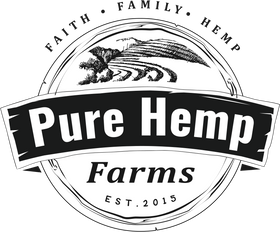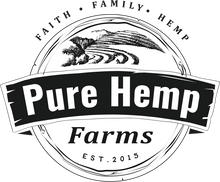Delta-8 THC: Will It Show Up on a Drug Test?
Delta-8 THC remains one of the most popular hemp-derived cannabinoids, but it also raises one of the biggest questions among users: Will Delta-8 show up on a drug test? As cannabis laws evolve, workplace policies tighten, and new testing methods emerge, this question has never been more relevant.
In this updated guide, we break down the truth about Delta-8 detection in 2025, how drug screenings work, and what to do if you’ve already consumed Delta-8 before an unexpected test. You’ll learn:
-
🧪 Which tests detect Delta-8 and why
-
⌛ How long Delta-8 stays in your system
-
🚫 What causes false positives and how to avoid them
-
🧴 Detox tips and testing hacks that may help
If you’re using Delta-8 for relief, relaxation, or sleep, and want to make sure you're protected you’re in the right place. We’ll also show you how to choose lab-tested Delta-8 products that prioritize purity, transparency, and peace of mind.
When it comes to cannabis legalization and drug testing, consumers navigate a constantly changing landscape. Currently, one of the biggest gray areas surrounds the compound delta-8 THC.
Delta-8 is the latest hemp-derived cannabinoid to bask in the spotlight, but many people still have a lot of questions about the compound. Since delta-8 produces similar effects as traditional THC, one of the most pressing concerns about lab tested Delta-8 vapes and other products is whether or not it will show up on a drug screening for cannabis.
In this article, we’ll cover some of the most frequently asked questions about delta-8, including whether the compound will cause you to fail a drug test.
What is Delta-8, and How Is It Different from Regular THC?
There are many types of tetrahydrocannabinol (THC). While THC is still in the plant, it exists in its acidic form, THCA. After THCA is transformed by decarboxylation, through smoking, vaping, or cooking, the molecule drops its acid group and becomes ready for the body to absorb as THC.
Traditional delta-9 THC and hemp-derived Delta-8 products from JustKana are chemical analogues or isomers. THC isomers, such as delta-8, delta-9, and delta-10, are almost identical except for the placement of one double-bond. In the case of traditional THC, the double-bond links to the 9th atom in its carbon chain, and scientists call it delta-9 THC.
When delta-9 THC begins to degrade, it produces several close analogues, including delta-8 THC. In the delta-8 molecule, the double-bond repositions itself on the eighth carbon atom in the chain. This tiny shift in the placement of the double-bond causes the delta-8 molecule to change into a more stable form that can’t bond as strongly with CB1 receptors in the brain.
Delta-8 THC is a naturally occurring cannabinoid and a close isomer of Delta-9 THC — the compound most commonly associated with the cannabis "high." While Delta-8 is legal under the 2018 Farm Bill, its chemical structure is similar enough to Delta-9 that it produces many of the same metabolites during digestion and metabolism.
This is the critical issue: drug tests don’t test for Delta-8 or Delta-9 directly they test for the byproducts your body creates after processing THC, and those byproducts look nearly identical no matter the source.
How Do Drug Tests Detect Delta-8 or THC?
When THC enters the body, it breaks down into compounds called metabolites. These byproducts especially THC-COOH are what most drug screenings are designed to detect. It doesn’t matter whether the THC came from Delta-8 or Delta-9 once your body processes it, the result is nearly identical metabolites.
For example, when you consume THC in edible form, your liver converts it into 11-hydroxy THC, a potent metabolite that can linger in your system for days. This is why Delta-8, though legal in many states, can still trigger a false positive for marijuana on a standard drug test.
Most drug tests rely on two common testing methods:
-
Immunoassay (IA): A rapid screening test that checks for THC-related compounds. It's commonly used for initial detection.
-
Gas Chromatography-Mass Spectrometry (GC-MS): A much more sensitive and specific test that confirms the presence of THC metabolites, often used to verify IA results.
Since Delta-8 and Delta-9 THC are molecularly similar, both can produce a positive result even if you’re only using federally legal hemp-derived products.
Summary Table: Delta-8 Detection by Test Type
| Test Type | Detects Delta-8? | Detection Window |
|---|---|---|
| Urine (IA) | ✅ Yes | 1–30 days |
| Lab Confirmed (GC-MS) | ✅ Yes | Up to 30+ days |
| Blood Test | ✅ Likely | 1–2 days |
| Saliva Test | ⚠️ Sometimes | 1–2 days |
| Hair/Nail Test | ✅ Yes | Up to 90 days |
If you're concerned about passing a drug test, remember: tests don’t look for Delta-8 itself they look for the THC metabolites your body leaves behind.
👉 Want a clean alternative? Check out JustKana’s Delta-8 Collection for lab-tested, transparent options.
What Should I Do if I’ve Already Consumed Delta-8 and I Need to Take an Unexpected Drug Test?
If you’re subject to random drug testing, you should avoid consuming delta-8. Most drug tests aren’t sophisticated enough to tell if the THC metabolites they detect come from legal, hemp-derived delta-8 or federally prohibited cannabis.
Unfortunately, life sometimes presents us with unpredictable challenges. So, what do you do if you’ve already consumed delta-8 and you need to pass an unexpected drug test?
First of all, stop consuming delta-8 immediately. Although there are no guarantees that you’ll pass the drug test, there are some actions you can take to reduce your chances of testing positive, including:
- Purchasing a detox kit: While they’re far from foolproof, some of the higher-quality cannabis detox kits can speed up the process of eliminating THC metabolites.
- Drinking plenty of water: Water is critical for flushing toxins from the body and can also help dilute any leftover metabolites.
- Exercising: Physical exercise helps burn fat, speed up metabolism, and remove toxins from the body.
- Taking an at-home cannabis test: Although they’re far less accurate than the professional varieties, taking a DIY test can give you a rough idea of where you stand.
-
Alerting your employer or other testing agency: Some authorities may offer leniency if you inform them that you’ve been using hemp-derived Delta-8 THC, which is legal under the 2018 Farm Bill.
However, laws vary widely and in some cases, Delta-8 is banned outright. You’ll want to be careful about disclosing use if you live in a restricted state. - Asking to have a GC-MS test: Having a more sensitive GS-MS test to confirm a false positive may reverse your result and absolve you of any negative consequences.
👉 Check the current state-by-state legality of Delta-8 THC before making any decisions.
How Long Does Delta-8 Stay in the Body?
Since delta-8 is a THC isomer, the compound will remain in your system for approximately the same amount of time that traditional THC does. Many factors affect the duration that delta-8 and its metabolites stay in your system, including:
- Bodyweight
- Amount consumed
- Metabolism
- Method of consumption
- How much water is in the body
Typically, the actual delta-8 molecule can last up to 8 days in urine, and its metabolites last even longer. If you have an average metabolism and you only consumed delta-8 a few times, you can usually clear your system of THC metabolites in around 3-4 weeks. However, heavy delta-8 consumption can provoke a positive drug test even if you’ve stopped for 30-60 days or more.
Another factor is the type of drug test. So far, we’ve been talking mainly about urine testing, the most common form of drug screening. Blood and saliva tests can detect delta-8 that was consumed up to 30 days prior to the test. Hair and nail exams are even more sensitive and can detect THC metabolites that were consumed much earlier, typically up to 90 days.
Conclusion
Unfortunately, delta-8 will probably show up on a drug test. If you’re required to pass random drug screenings or foresee a cannabis test in your future, you should refrain from consuming delta-8. Instead, you may want to relax with hemp products containing CBD isolate. If you’ve already consumed delta-8 and get tagged for a drug test, don’t panic. You can take a variety of actions to reduce your chances of triggering a false positive.
If you’re looking beyond drug testing and want to understand what actually separates a high-quality Delta-8 cartridge from a risky one, this guide on how to choose a Delta-8 cart covers oil clarity, terpene balance, and the hardware details that make all the difference.
Frequently Asked Questions About Delta-8 and Drug Testing
Q: Will Delta-8 make you fail a drug test?
A: Yes, very likely. Delta-8 THC metabolizes into the same compounds as Delta-9 THC, which most drug tests are designed to detect. Even if your product is hemp-derived and legal, it will still trigger a positive result.
Q: Can drug tests tell the difference between Delta-8 and Delta-9?
A: No not typical drug tests. Standard immunoassays cannot differentiate between Delta-8 and Delta-9 metabolites. Only advanced lab testing like GC-MS (Gas Chromatography-Mass Spectrometry) may detect the difference, and even then, it’s rarely used by employers.
Q: How long does Delta-8 stay in your system?
A: It depends on body type and usage, but on average:
-
Occasional users: 3–7 days
-
Frequent users: 15–30+ days
-
Heavy users: Up to 60 days or more
Delta-8 metabolites are fat-soluble and may linger longer in those with higher body fat percentages.
Q: Does Delta-8 show up on a urine test?
A: Yes. Most urine drug tests (IA) are designed to flag THC metabolites regardless of whether they came from Delta-8, Delta-9, or even Delta-10.
Q: Can you pass a drug test after using Delta-8?
A: It’s possible, but not guaranteed. Timing, hydration, metabolism, and body composition all play a role. If you're randomly tested, it's safest to avoid Delta-8 altogether.
Q: Are there any Delta-8 products that won’t show up on a drug test?
A: No. If it contains Delta-8 THC, it carries a risk of triggering a positive result. The only safer alternatives are THC-free CBD isolate or verified broad-spectrum products.
Q: How can I detox Delta-8 from my system quickly?
A: While there’s no instant solution, you can try:
-
Drinking lots of water
-
Exercising regularly
-
Using a high-quality detox kit
However, these are not guaranteed to work in time for your test.
Q: What’s the safest cannabinoid to use if I get drug tested?
A: CBD isolate or CBG are the safest. They contain no detectable THC and won’t produce THC metabolites but only if verified by third-party lab results.
Q: Will Delta-8 show up on military or federal drug tests?
A: Yes. Military and federal drug tests follow strict zero-tolerance guidelines for THC metabolites, and Delta-8 is not exempt.
Q: Should I tell my employer if I’ve used Delta-8?
A: That depends. Some workplaces might accept hemp-derived Delta-8 if it’s legal in your state, but most do not. Unless you're 100% sure, it's best not to risk it.

